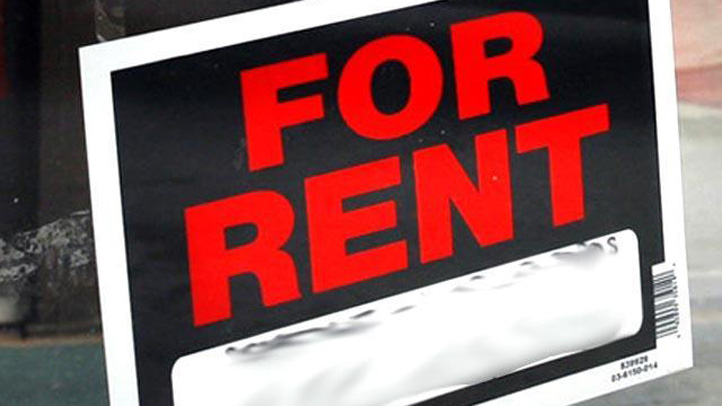State Senate investigators are calling on lawmakers to lift a ban on medical care in residential drug treatment facilities, pointing to dysfunction and deaths in facilities stymied by outdated laws.
A report issued yesterday by the Senate Office of Oversight and Outcomes links lax oversight by the state Department of Alcohol and Drug Programs to the deaths of clients at private, inpatient drug treatment centers. It also details the way operators “tie themselves in knots” to comply with a ban on medical treatment while caring for sick people.
"Almost everyone involved in the current system of regulating residential drug and alcohol programs agrees that it doesn't work and is not good for clients," the report by principal consultant John Hill says.
The Department of Alcohol and Drug Programs respects the research that went into the report and is continuing to review its details, according to a statement by spokeswoman Suzi Rupp.
"The department acknowledges the critical issues addressed in this report and takes it seriously," she said. "We remain committed to protecting the health and safety of all clients served in the facilities we license and will take all appropriate action within our authority to do so."
The department looks forward to working with the Legislature and other stakeholders "to continually improve California’s substance use disorder treatment system," the statement said.
Senate President Pro Tem Darrell Steinberg, D-Sacramento, who created the office that produced the report, called the findings "disturbing."
Local
"We need to do everything we can to ensure the protection of vulnerable clients," Steinberg said in a statement. "This report raises important questions about the regulation of our state’s drug and alcohol treatment programs, and we need to closely examine how to address those issues.”
The decades-old ban on medical treatment dates back to an era when addiction treatment was based on self-help and peer support programs, according to the report. Since then, experts have come to treat substance abuse as a disorder, sometimes requiring medication, and in relation to other medical issues, such as mental illness.
“Many other states have long since resolved such issues,” the report stated. "Nine other large states contacted by our office allow medical care," and several require it.
Lawmakers failed to pass proposed laws that would have addressed the problem during each of the past three legislative sessions. The latest bill would have allowed 24-hour treatment centers to provide medical care without a special license. The legislation was eventually amended in June to become a bill on drilling for natural gas.
The Senate report found that state law clashes with requirements from health insurers and an addiction treatment facility accreditation group, which expect that patients enduring risky and painful detoxification periods will have routine, on-site medical care. It also found that enforcement by the Department of Alcohol and Drug Programs, which licenses and inspects drug treatment centers, has been inconsistent.
The ban on medical professionals has been widely ignored, the report found, with 34 rehab facilities openly advertising that doctors and nurses will tend to clients. In other cases, the drug and alcohol department was slow to act when facilities accepted clients for treatment even if they were too sick for a nonmedical setting.
In several cases clients died, according to the report:
- At The Living Center, in Modesto, a marketing staff member admitted a man who was shaking, couldn't walk and whose skin was yellow. He was later sent to a hospital, where he died, the report says. The marketing employee who admitted the patient said that “unless a client fell down during time of admission, he would not see a need for medical attention,” the report says.
-
The state medical board alleged that a 29-year-old woman who drowned in a bathtub was too sick to be properly treated at Bay Recovery in San Diego. Dr. Jerry Rand, who treated her, denied responsibility for her death. Another patient died before the state suspended the program's license.
- At A Better Tomorrow in Riverside County, a man who needed an oxygen tank was admitted to the program, but his oxygen was not supplied. He died one day later. It was the fourth death at that facility.
State officials eventually revoked the license of the facility, but A Better Tomorrow continues to run other homes.
Two former program staffers told Senate investigators that even after the fourth death, the program administrators “ ‘pushed people’ who appeared too sick to be in the program.”
One former staffer said a woman with a medical condition that required an adjustable bed was promised one and then given a normal twin bed. The program admitted another woman who was delusional and so lethargic that she nearly fell asleep in her food. Former program employees said the woman wound up later spending three days in an intensive care unit.
A Better Tomorrow told Senate investigators that state regulations are contradictory, holding them responsible for patient injuries but banning them from providing comprehensive medical care.
Hill said the Department of Alcohol and Drug Programs has improved its oversight in recent years, but the future is unclear, since the department is scheduled to be dissolved next year.
"It’s cause for concern because we don’t know who’s going to be taking over these responsibilities and what their approach will be," Hill said in an interview.
California Watch reporter Will Evans contributed to this report.
View this story on California Watch
This story was produced by California Watch, a part of the nonprofit Center for Investigative Reporting. Learn more at www.californiawatch.org.



